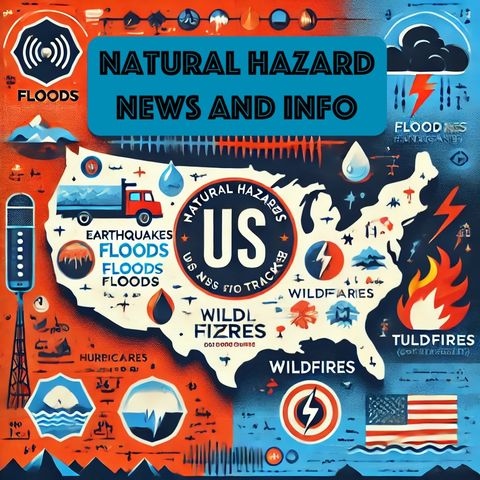"Cutting-Edge Webcams Elevate Volcano Monitoring in Hawaii"

Download and listen anywhere
Download your favorite episodes and enjoy them, wherever you are! Sign up or log in now to access offline listening.
"Cutting-Edge Webcams Elevate Volcano Monitoring in Hawaii"
This is an automatically generated transcript. Please note that complete accuracy is not guaranteed.
Description
Webcam upgrades keep a sharp eye on Hawaiian volcanoes Photography has been a crucial part of volcano monitoring in Hawaii since the establishment of the USGS Hawaiian Volcano Observatory (HVO)....
show morePhotography has been a crucial part of volcano monitoring in Hawaii since the establishment of the USGS Hawaiian Volcano Observatory (HVO). In 1911, Frank Perret spent a summer capturing stunning black and white photos of Kīlauea's summit lava lake in Halemaʻumaʻu crater. Fast forward a century, and webcams are scattered across the island, snapping images of the volcanoes 24/7 in 4K resolution.
The evolution of photography has been instrumental in enhancing the capacities of volcano monitoring. Early efforts, such as those made by Perret, were limited by the technology of the time but provided invaluable visual records. His photographs not only documented the activity but also allowed scientists to analyze the morphology and behavior of the lava lake, offering crucial insights into volcanic processes.
Today, the island's volcano monitoring capabilities have leaped into the digital age. Modern webcams offer continuous, high-resolution surveillance, providing scientists with real-time data that is critical for monitoring and analyzing volcanic activity. These images are not just more detailed than those of Perret’s era but also offer comprehensive coverage of multiple volcanic regions, something that was not possible with early 20th-century technology.
The current network of webcams across Hawaii plays a vital role in both research and public safety. The USGS Hawaiian Volcano Observatory leverages these 4K webcams to detect early signs of volcanic eruptions, allowing for timely warnings and evacuations that can save lives and property. Each camera is strategically placed to cover specific areas of interest, from summit craters to lava flows, ensuring no significant activity goes unnoticed.
Moreover, these high-definition webcams are accessible to the public. Real-time feeds are available online, connecting people from around the world to the mesmerizing yet volatile nature of Hawaii’s volcanoes. This transparency helps demystify volcanic activity and fosters a greater appreciation and understanding of these natural phenomena. It also encourages community engagement and awareness, which is crucial when living in a region prone to volcanic eruptions.
In addition to monitoring active eruptions, the webcams provide valuable data on post-eruption processes. For instance, they help scientists study how new lava landscapes evolve over time, offering clues about future volcanic behavior. Observing the cooling and solidification of lava, the formation of new volcanic features, and the interaction between lava and the environment are all critical to understanding volcanoes better.
Furthermore, these upgrades are not static; they continue to evolve with advances in technology. Improvements in camera resolution, night-vision capabilities, and data transmission speeds mean that the monitoring network is continually becoming more sophisticated. Future developments might include advanced features like thermal imaging and automated alert systems, enhancing the ability to detect changes in volcanic activity even more promptly.
The blend of historical photography and modern technology underscores the importance of continuous innovation in volcanic monitoring. From Frank Perret’s pioneering photos to today’s high-resolution webcams, each technological leap has brought us closer to understanding and coexisting with Hawaii’s powerful and unpredictable volcanoes. The ongoing enhancements ensure that the HVO remains at the forefront of volcanic research and public safety, providing a watchful eye over one of the most volcanically active regions on Earth.
Information
| Author | QP-4 |
| Organization | William Corbin |
| Website | - |
| Tags |
Copyright 2024 - Spreaker Inc. an iHeartMedia Company

Comments